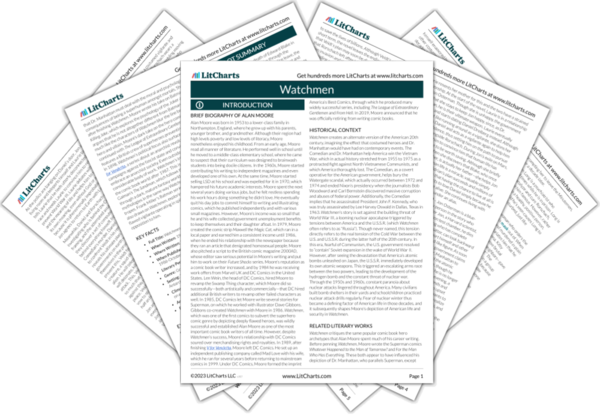Walter’s criticism of Dr. Long insinuates that Long does not truly understand the nature of emotional pain or the depravity of human beings. Long’s naiveté echoes the naiveté of heroes like Captain Metropolis, who believe that fighting crime as is simple as stopping robbers, and that they can make society better just through hard work and courage. But this passage also highlights how Rorschach’s own views are similarly simplistic. The material, which becomes Rorschach’s mask, symbolizes his view of morality and ethics: everything is clearly divided into good and evil, and though those boundaries shift around, there is never any gray area; morality is black and white, without ambiguity or compromise.
